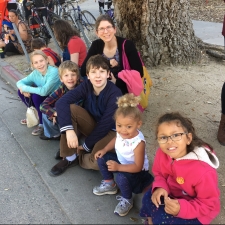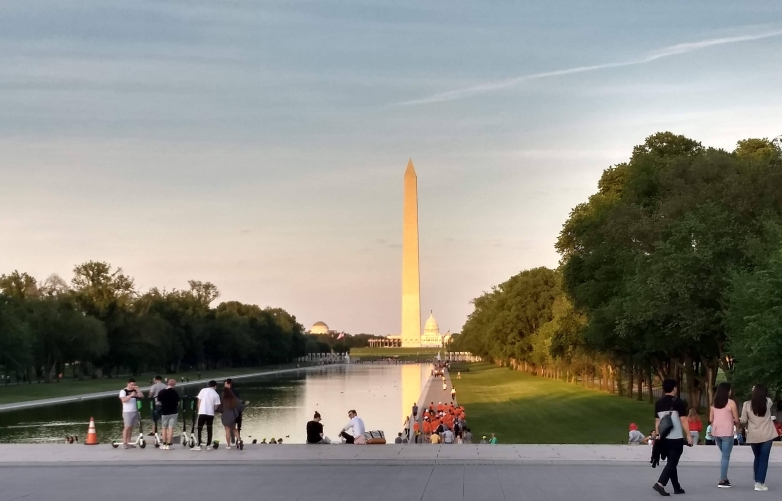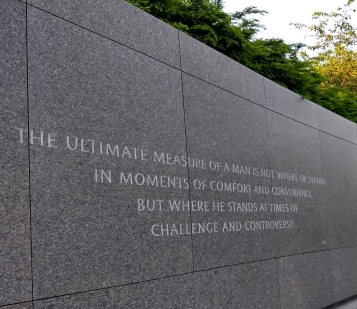It has been a long time since I posted. It is funny how I am always thinking of things I could blog about, but then often don’t get past the initial outline. Partly because I don’t take the time to sit down and work on it (since my sit-down-and-work time is pretty jam packed with tasks already), but partly because I am afraid…
That is weird, right? Why should I be afraid to share my thoughts? Why do I worry that people won’t assume the best of me if I try to share? I mean, I see myself as a learner who always has more to learn; I consider myself a moderate politically—yet I am afraid that if someone finds out one piece of my perspective or views, they will construct a whole image of me that is more based on their concept of “what people who hold that view” are like, than on who I actually am.
Well, our culture today…(Stay with me a minute, now, don’t roll your eyes – I am going to consider culture, not blame it). As I was saying, our culture today is fascinating. As has become very clear, we are in a time of extreme polarization in our country right now. We all know that social media is not helping with that either. We often live in little echo chambers, drawing in articles that will affirm how we already think, “yelling” at people we don’t know and assuming/assigning them bad motives so that we can keep our concept that we are “right” and they are “wrong”; we are “smart” and they are “stupid”; we care about people and they only care about themselves and their own interests. It doesn’t seem to matter which perspective you are coming from; this is how both sides are training themselves to feel.
It can feel like we are stuck with a choice: either (1) stop engaging and isolate or (2) keep engaging and risk constant judgment and critique. I personally am not a fan of either option, and I believe there has to be a third way. Part of the reason I think the choice is a false one is that, while on the surface it looks like a choice between “safety” and “fear,” both choices (with this framing) tend to lead to unhealthy fear.
 Choosing isolation might feel safe at first, but by rejecting deep relationships, we reject both relational joys and relational skills. That inevitably leads to fear. I want my children to know how to engage in healthy disagreements, not seek to avoid them.
Choosing isolation might feel safe at first, but by rejecting deep relationships, we reject both relational joys and relational skills. That inevitably leads to fear. I want my children to know how to engage in healthy disagreements, not seek to avoid them.
Yet, if in my relationships I avoid topics that feel touchy, I model a lack of depth that leads to isolation. Isolation means we neither feel known nor let people deeply know us. As a result, a narrative of fear plays in our heads: “what if my surfacy friend finds out something about me he doesn’t like and then rejects me? Then I will be even more isolated…” In addition, if we are a parent or mentor who has chosen the path of isolation from culture, we have a second current of fear: Will my children follow my example and fight culture’s influence too, or will they get sucked in by culture and therefore pull away from me?
On the other side, choosing engagement can also be dominated by fear. We might be afraid of misunderstandings – of people not assuming the best or really trying to understand us. We might be afraid to express our thoughts or to ask questions—even in a wondering kind of way—because people might label us backwards or stupid or uneducated or even bigoted. Sometimes we try to make up for this by choosing a false form of “safety” based on displays of “power.” It may manifest in defensiveness, biting back with words, or just pulling into a deeper echo chamber, which is another form of going into isolation after all…
I think the better choice—a “third way” so to speak—is to choose engagement, most deeply in more personal contexts. It is to expect that we can have a real human connection across difference. It is to believe that, even if someone else is pre-disposed to make assumptions about me, I can choose to still assume the best about them and seek to build connection. Quite frankly, this usually involves not focusing on social media so much, but intentionally engaging in my neighborhood, at my kids’ schools and activities, with students on campus—places where I can actually be vulnerable, be a listener, humbly serve, and share my heart and passions. Focusing on what I have in common with people is what draws me into this choice. We are all unique and creative human beings, made in the image of God; we all long for connection and affection; we all want to be part of something meaningful and impactful. Even if we think the solutions to our longings are different, we can connect over the longings themselves, and then go from there.
I was just recently in Washington DC on a trip for work. DC is certainly a very polarized place right now, to put it mildly. But it was fun to get into real conversations with people from different sides of the political divide. 
In one particular conversation, my new acquaintance and I had a rare opportunity to delve beyond the normal assumptions about the views of the other. In this case, it was a conversation about “religious freedom.” In fact, we simply named the labels, addressed them head on, and then went beyond them. We talked about how real people are so much more complex and don’t fit those labels. It turned our conversation into a dialogue about what it could look like to assume the best and not just push people into our boxes for them, but rather invite them to paint a picture of their passions and their complexities. Even though it didn’t change the fact that the labels have and will continue to dominate the landscape, I left encouraged. My heart was hopeful because I had made a real connection.

A quote at the MLK monument in DC
I am confident that God calls us to pursue this path of gracious, respectful, yet vulnerable engagement; not hiding what we believe or think, but speaking it with grace and respect. The Apostle Paul says that for those who follow Jesus, it was “the goodness and loving kindness of God” that saved and changed us (Titus 3:4), so we likewise should “be gentle and to show perfect courtesy toward all people.” (Titus 3:2) and our speech should “always be gracious.” In addition, the Apostle Peter says that, even when we engage directly about religion, sharing why we have such a deep hope in Jesus, we should do so “with gentleness and respect,” and combine it with “doing good” (1 Peter 3:15-17).
I like to listen. Yet I still have much to learn. Do you want to engage too?
